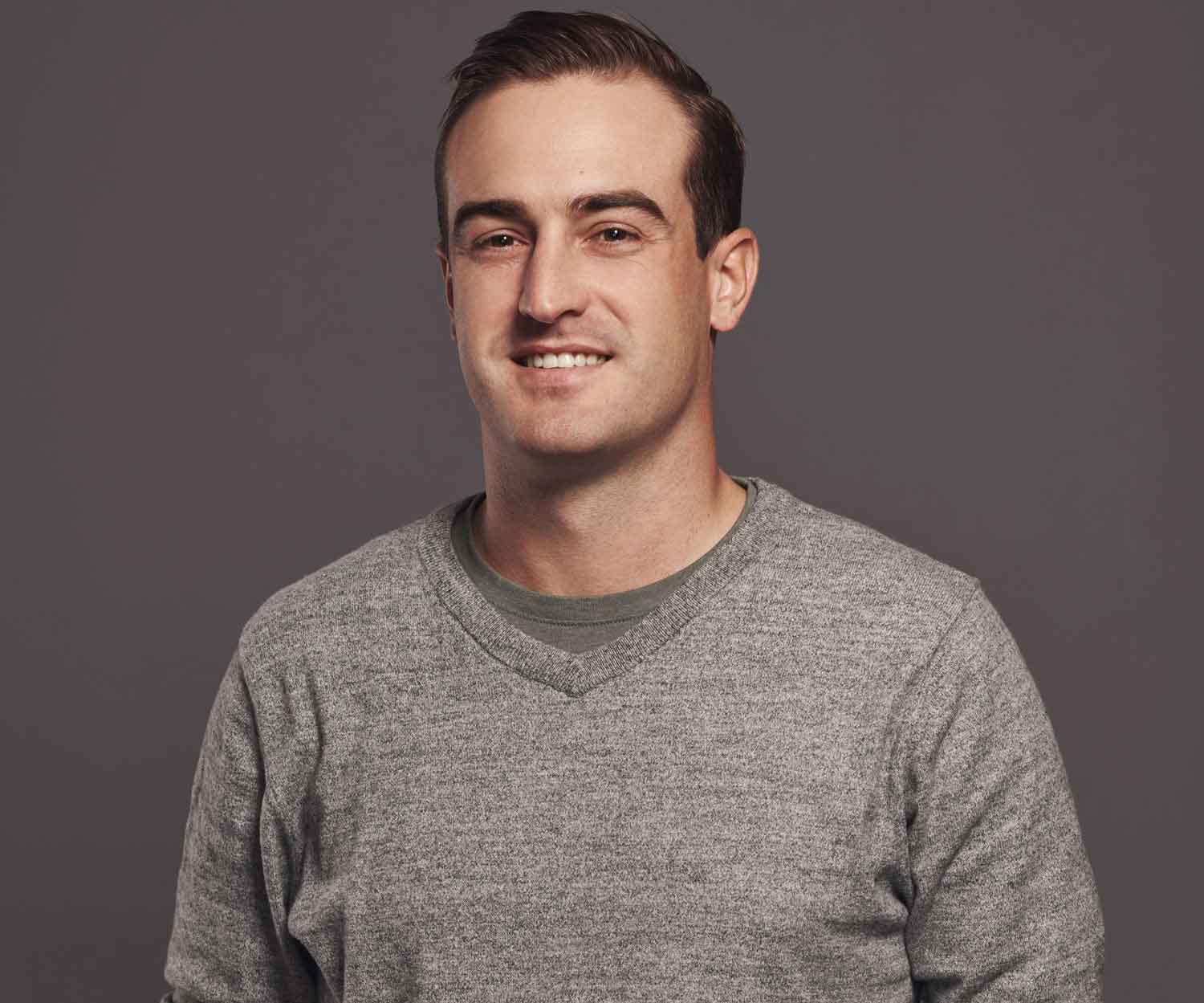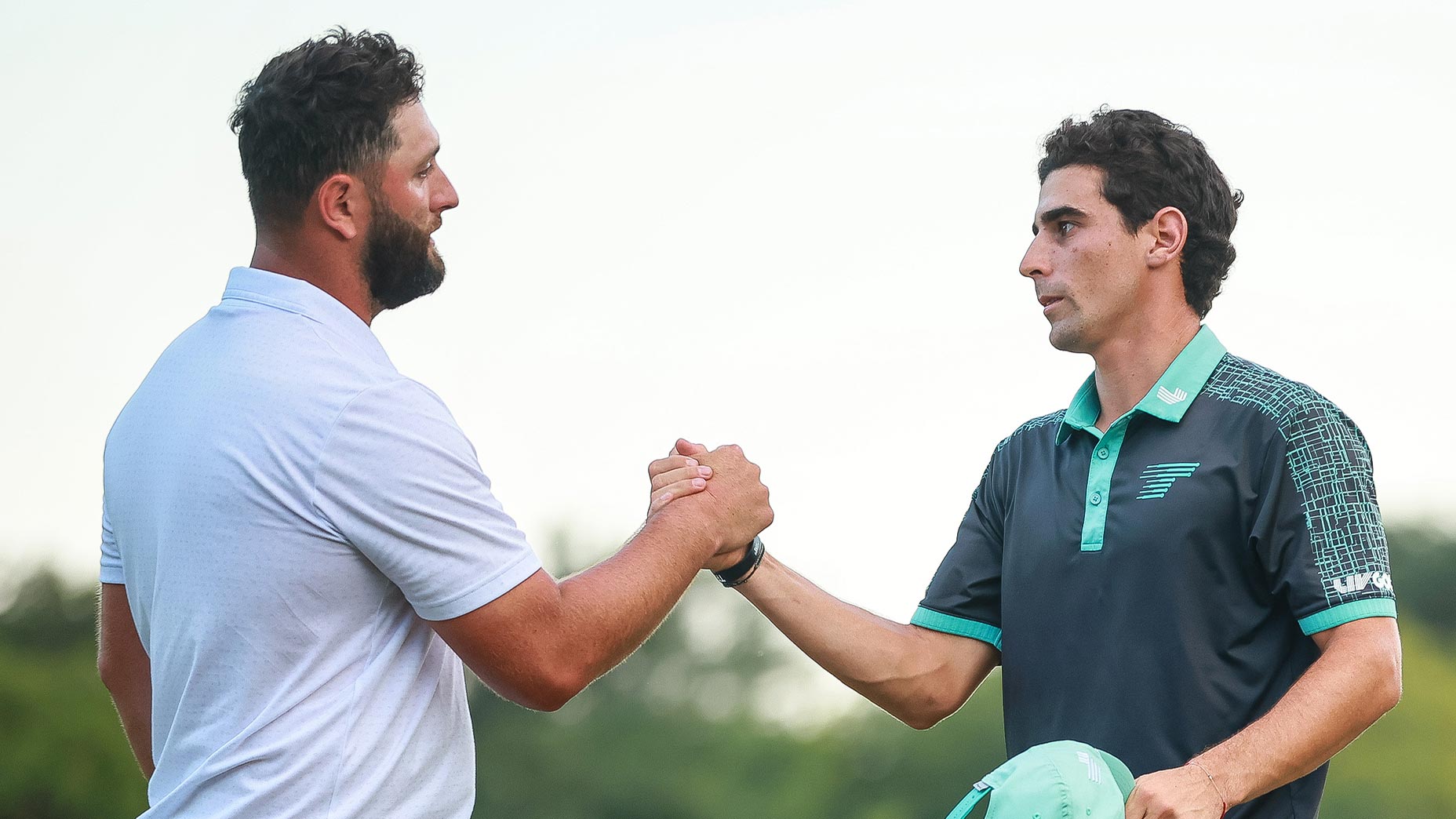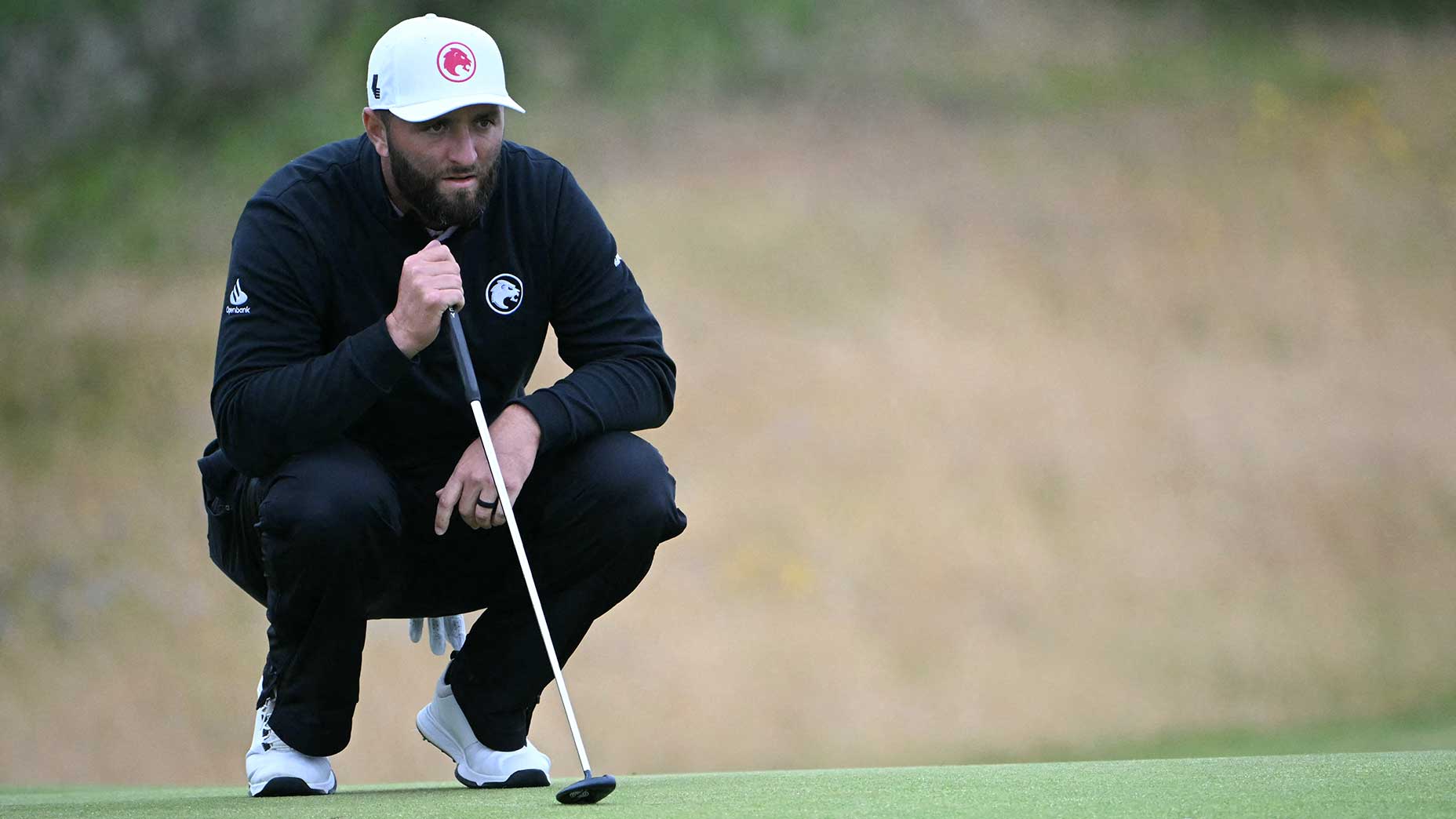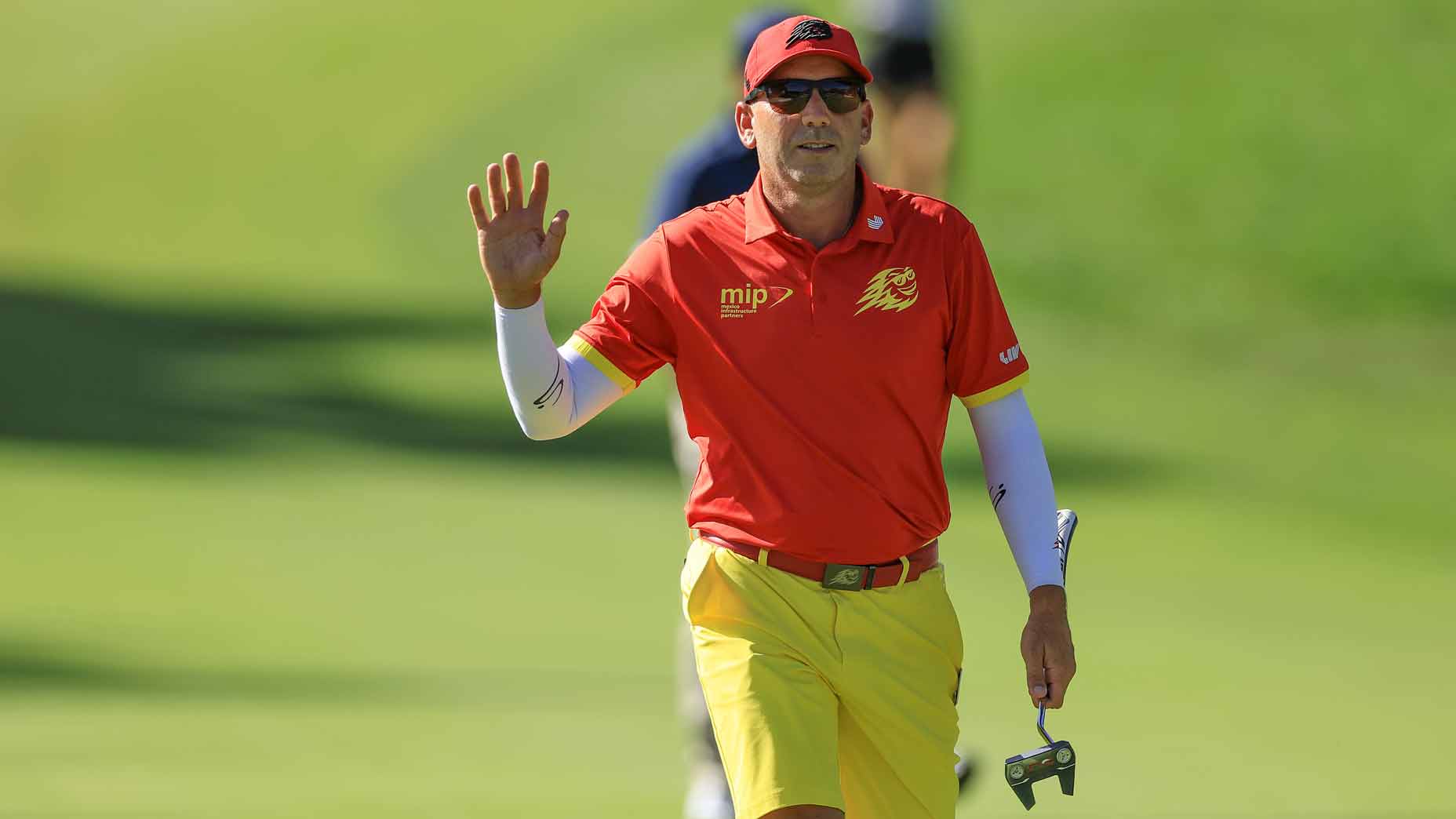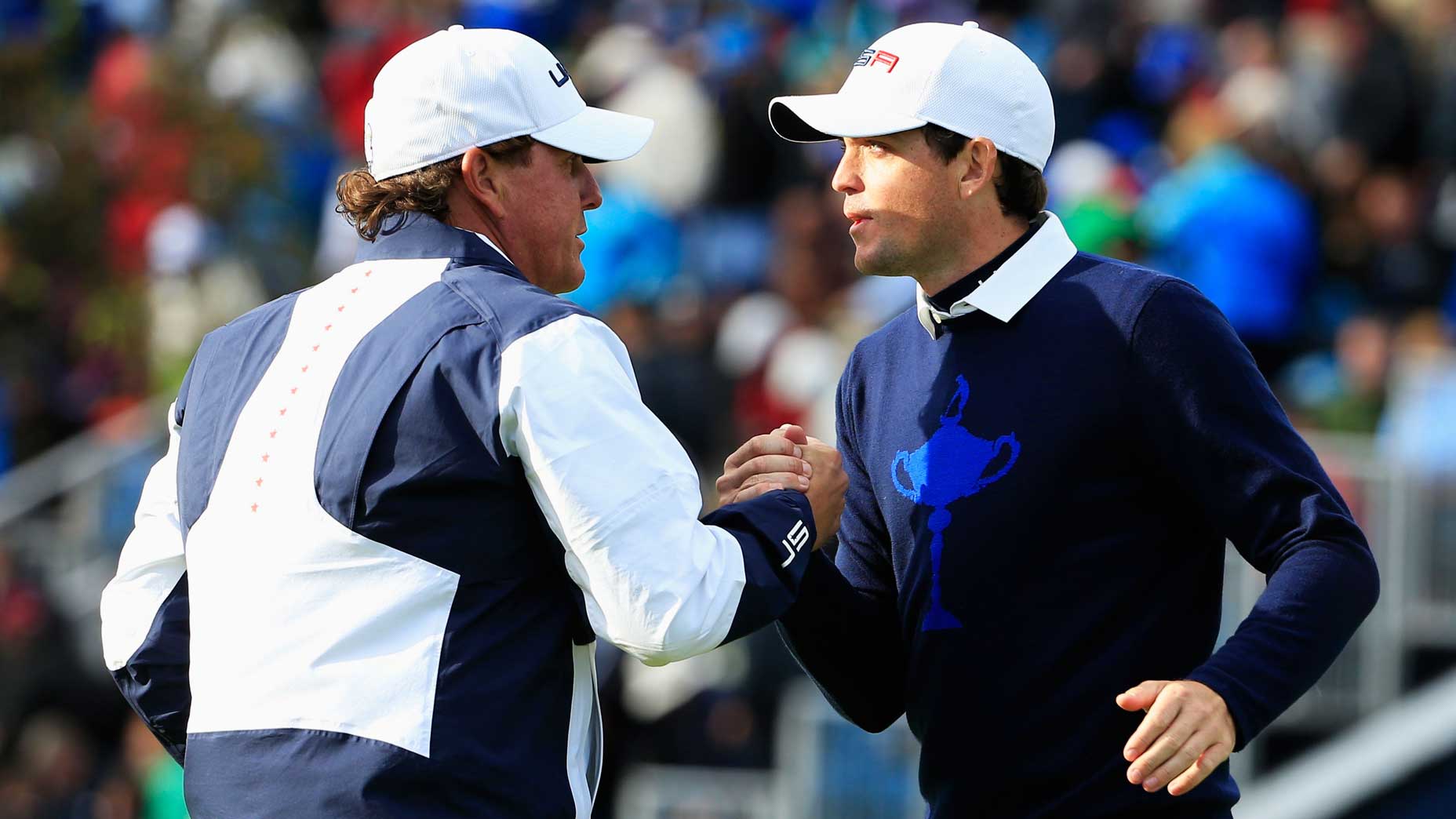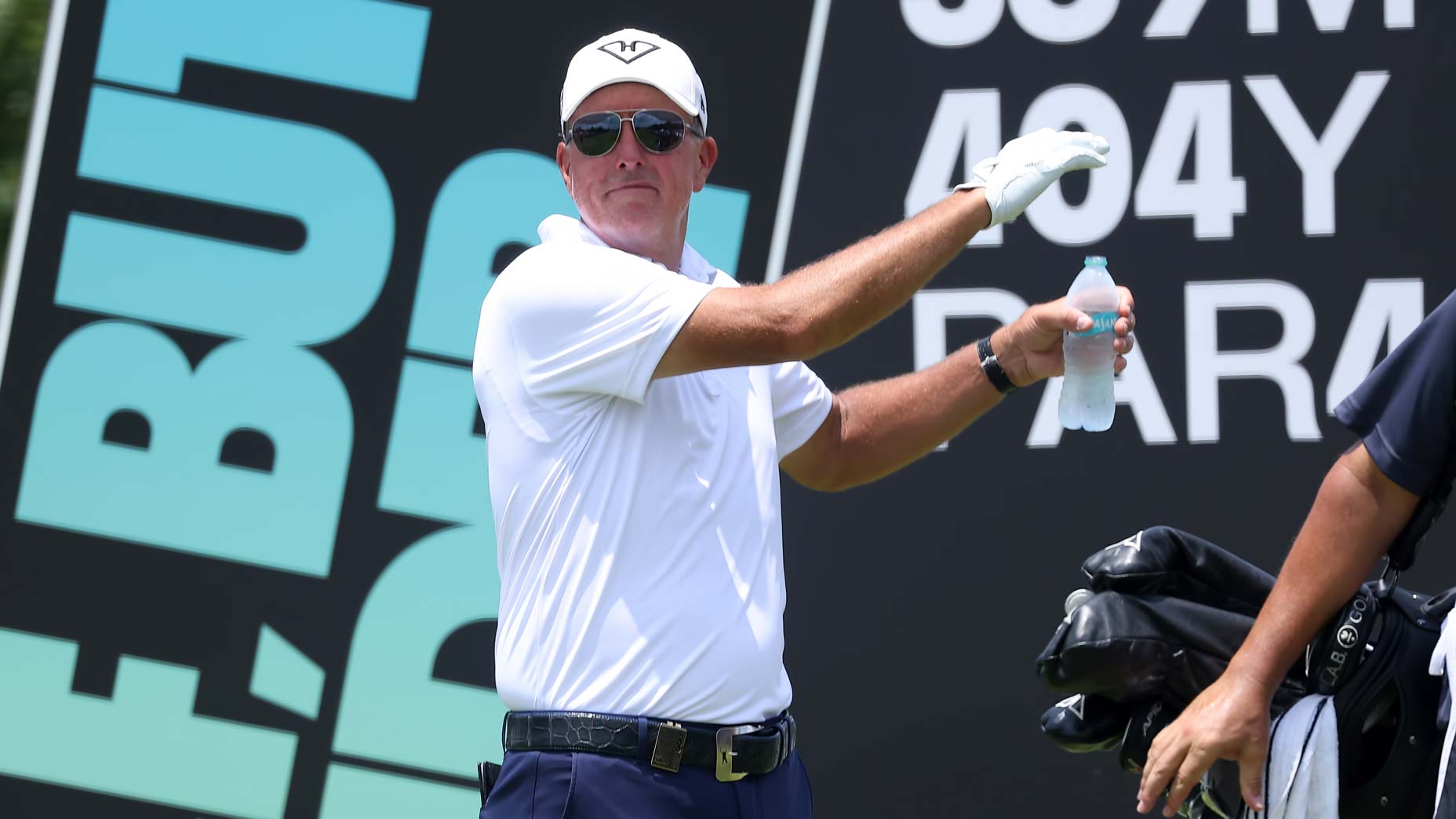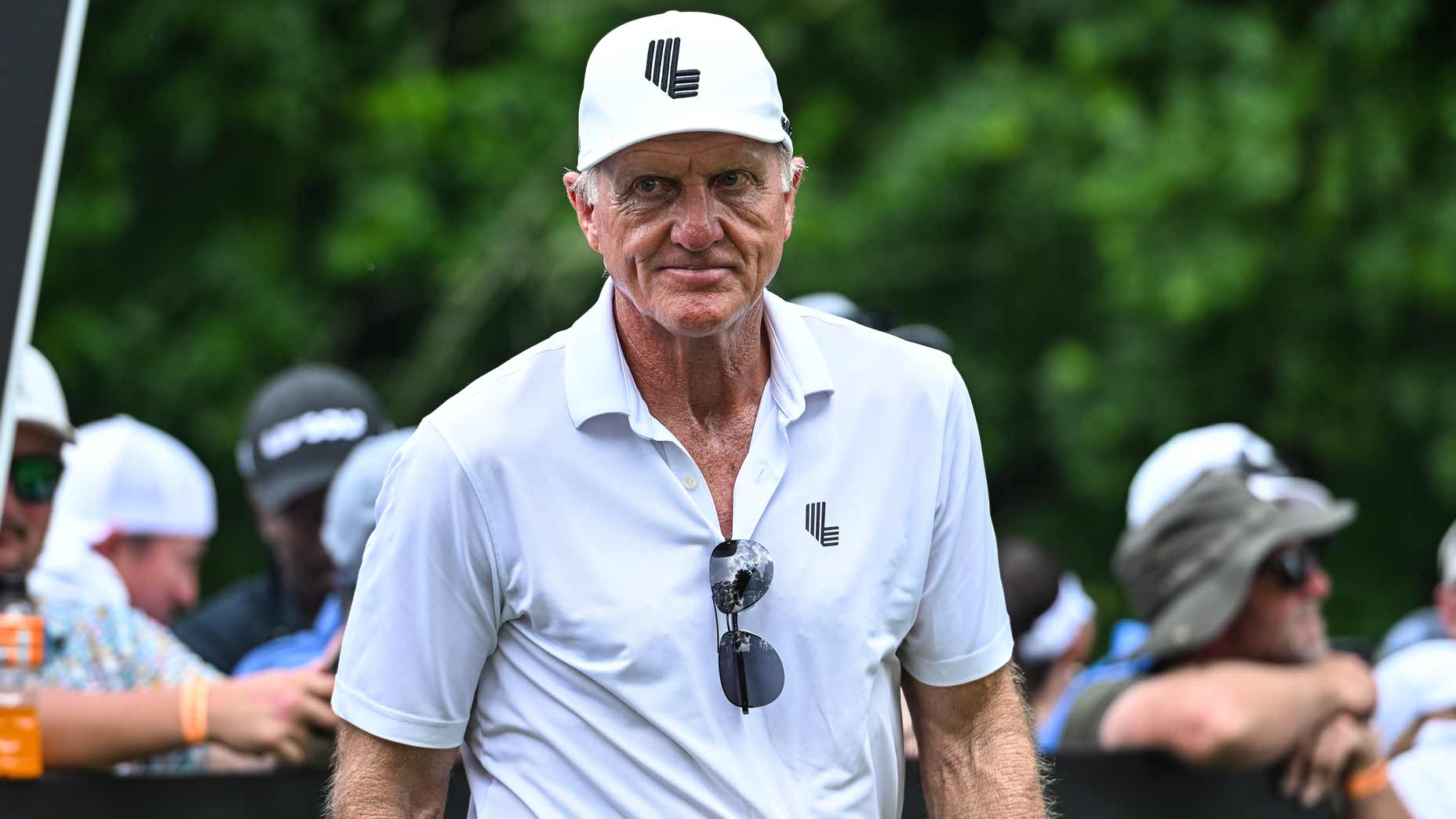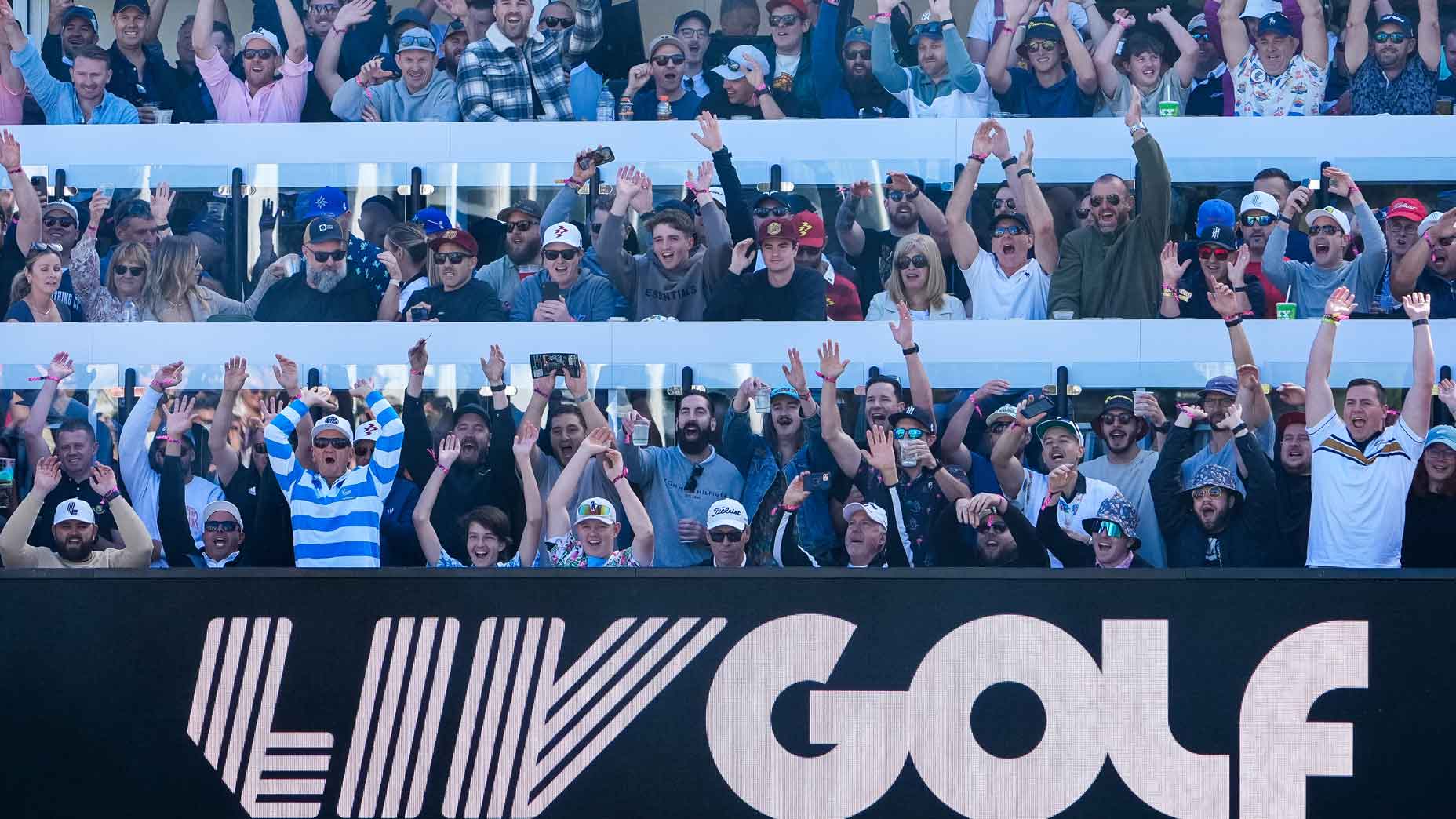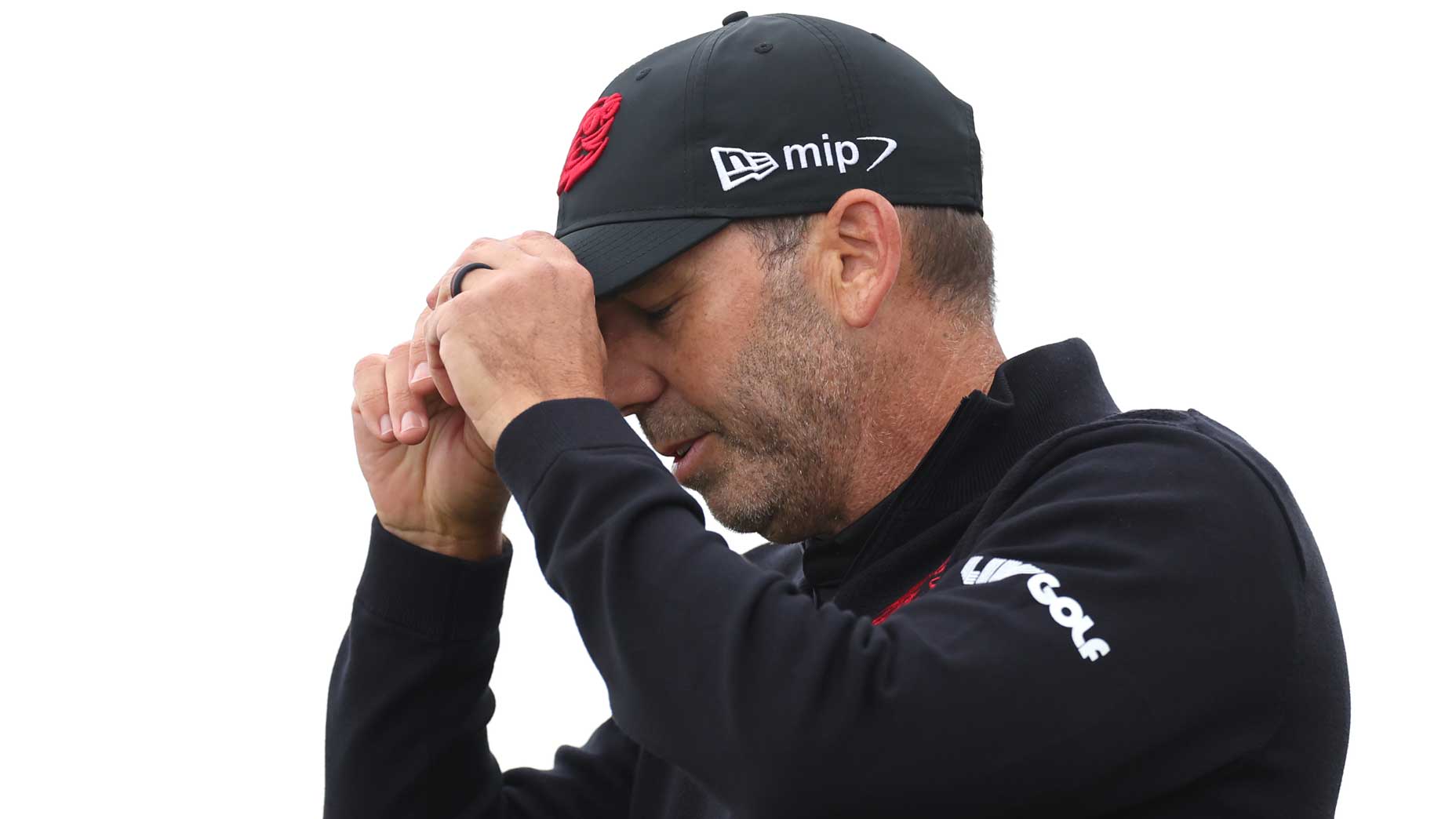Pro golf’s Player Empowerment Era is here. It will be messy
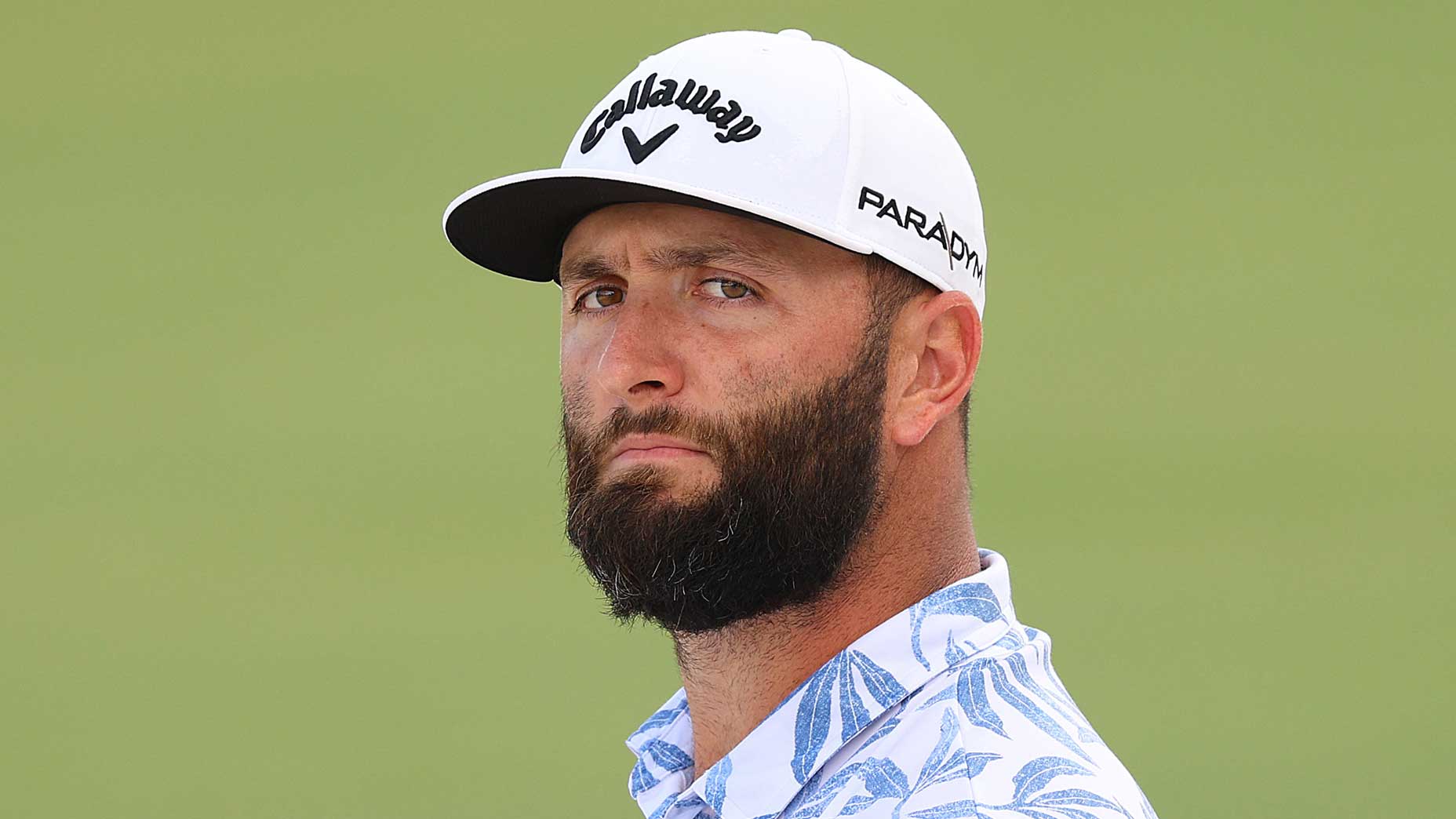
Jon Rahm is joining LIV Golf in a shocking twist of events in the pro golf world.
Getty Images
We are long past being surprised by pro golf news. Surprise left our range of emotions months ago. But while the official news that Jon Rahm has left the PGA Tour for LIV Golf may not be startling — after weeks of rumors swirling online — it can still be stunning.
Jay Monahan and the people who comprise the PGA Tour, both the executives in Ponte Vedra and the hundreds of pros reading about it on the internet, are no doubt stupefied. Uncertainty envelopes their fortress once again. Just when things felt calm and the Tour could move forward with confidence, WHAM. One of the most valuable assets in the stable is gone. One they figured they could count on.
Welcome to life as a soccer fan.
This is a very soccer-like move, anyway, leaving one league for another, wooed not by the style of play nor the level of competition as much as the riches on offer. Record-breaking riches, in this case. Players do this all the time in European football, vamoosing England for Germany or the Spanish league for France’s Ligue 1. Fans don’t benefit nearly as much as player and agent bank accounts do. But the players are the ones in control. They hold the power.
This is the culture that surrounds Rahm’s other favorite game. The Saudi PIF-owned Al-Hilal soccer club was ready to pay $1.1 billion for Kylian Mbappe last summer, which would have been the biggest deal ever made, had Mbappe accepted it. The richest deal ever taken seriously in pro golf? It’ll be Rahm’s, from the same Saudi bankroll, worth a reported $300 million (and maybe more) over multiple years. Is it surprising that the mega-millions athlete who will be in Spain next week to attend his favorite soccer club’s match — while wearing the Augusta National green jacket, no less — made a move so many soccer stars also made in the last six months?
Maybe not. But this is still earth-shifting news. Like the leading side of a chess board suddenly losing a rook. And this chess board would confuse the hell outta Magnus Carlsen. We won’t understand the significance of this move for weeks and maybe months. We won’t know how this impacts PGA Tour-PIF negotiations, or if it will inspire additional LIV signings. What we do know is that pro golf is in an ongoing player empowerment era. The key word: ongoing. It started slow and in early September it felt like it might be ceasing, but now it’s coming all at once.
In some ways you could argue player empowerment was already here. It started on whichever day Phil Mickelson’s lawyers allowed him to sign the dotted line and join LIV. Or whenever Mickelson convinced Bryson DeChambeau and others to join him. Perhaps even 12 months earlier when Mickelson won the 2021 PGA Championship at 50 years old, reclaiming every ounce of pro golf relevance during a magical four days. What you do matters, but when you do it matters almost just as much.
The timing of Rahm’s decision comes just as negotiations seemed to be dragging between the PGA Tour and its future investors. Just as Rahm bailed on the first season of the TGL. Just as Jordan Spieth and Tiger Woods, two members of the PGA Tour’s policy board, began to acknowledge ’non-negotiables’ that the player membership was keen for. Just as things were feeling…vulnerable. That can be when player empowerment has its greatest success rate. You see it in NFL holdouts and NBA lockouts.
The controversial reports surrounding Patrick Cantlay at the Ryder Cup? Those said less about the size of Cantlay’s melon and more about players feeling endowed enough to ask for a greater piece of the financial pie that is, unquestionably, one of the most fruitful tournaments in the world. Things got rather messy for all involved — Stefan Schauffele included — but the next Ryder Cup is bound to look a bit different as a result.
Collin Neville, one of the premier brokers of sports money on the planet, was ushered into the Tour-PIF negotiations in late July to work on behalf of Tour players. A “special advisor” role created out of thin air. It’s up to Neville to ensure — just like he did with Premier League Lacrosse — that the future PGA Tour will be player-owned. Past-, current- and future-player owned. Tiger Woods will, no doubt, have the most equity, for he pulled the Tour toward what it is today. Will Phil Mickelson be entitled to some of that equity, too? I’ll tell ya how Lefty feels.
It’s not just money. Even benign things like port-a-john frequency and cold tubs and convenient parking are being demanded of PGA Tour tournament officials in recent months. The latest was passed down from Tour HQ in November: if tournaments wish to continue hosting the best players in the world, courtesy cars are mandatory. Laundry and dry cleaning, for pros and caddies. Tournaments themselves will be asked to put up part of the growing purses. According to Sports Illustrated, it’s pushing some tournament directors toward a breaking point. Players rarely bear the costs of their demands.
Just last week, a petition made its way from inbox to inbox, player to player, asking professionals to sign on and fight for their right to more FedEx Cup points in non-Signature events, a system that was ultimately devised by 23 of the best golfers on the planet. The angst between those two factions — the haves and the have-nots — seems to grow every month. How seriously was the petition received? Not seriously enough, which helped elevate a fascinating wrinkle of player empowerment: Not all players have it.
It was a fitting chapter for the final stages of 2023, a year dominated by players talking about (and in Rahm’s case, walking toward) what they think is best for them, status quo be damned. There will be some sort of resolution in the end, sure. But not all golf fans will love it. That’s the thing about the Player Empowerment Era, though: it’s not designed to benefit all parties. That just might be the point.
The author welcomes your comments, concerns, and any other notes at sean.zak@golf.com.

